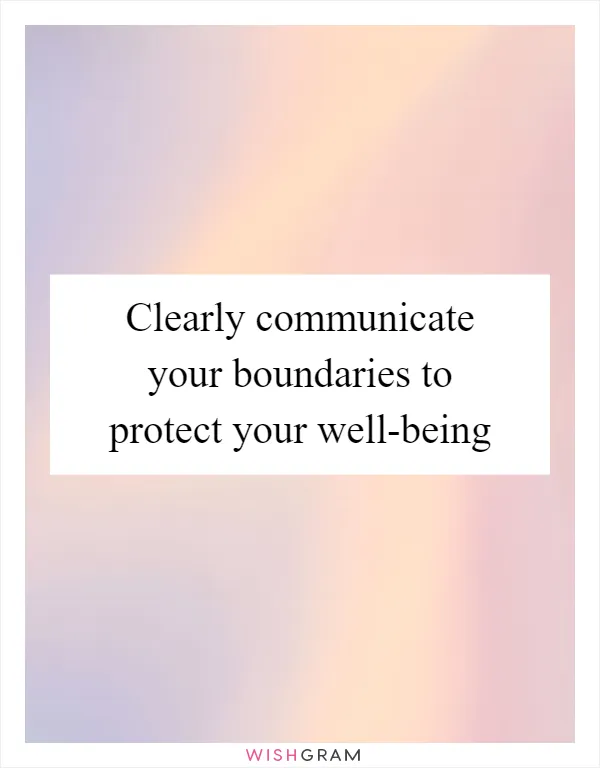Clearly communicate your boundaries to protect your well-being
Setting clear boundaries is an essential aspect of self-improvement and protecting your overall well-being. Boundaries act as a protective shield, ensuring that you maintain control over your life, emotions, and relationships. By effectively communicating your boundaries, you establish a framework that allows you to prioritize your needs, maintain healthy relationships, and foster personal growth.
To begin, it is crucial to understand what boundaries are and why they are important. Boundaries are the limits we set for ourselves in various aspects of life, such as personal space, time, emotions, and values. They serve as a way to define what is acceptable and what is not, both for ourselves and others. By establishing boundaries, we create a sense of self-respect and self-worth, which are fundamental to personal growth.
When it comes to self-improvement, clearly communicating your boundaries is key. Start by reflecting on your values, needs, and limits. Understand what makes you comfortable and what crosses the line. This self-awareness will help you articulate your boundaries effectively. Remember, boundaries are not meant to be rigid or inflexible; they should be adaptable and evolve as you grow and change.
Once you have identified your boundaries, it is essential to communicate them clearly and assertively. Be direct and honest when expressing your limits to others. Clearly state what you are comfortable with and what you are not. Avoid assuming that others will automatically understand your boundaries without you explicitly communicating them. Remember, people are not mind readers, and it is your responsibility to express your needs.
When communicating your boundaries, it is crucial to remain respectful and considerate. Use "I" statements to express how certain behaviors or actions make you feel. For example, instead of saying, "You always invade my personal space," say, "I feel uncomfortable when my personal space is invaded." This approach helps to avoid blaming or accusing others, fostering a more constructive conversation.
Additionally, be prepared for potential pushback or resistance from others when you communicate your boundaries. Some individuals may not respect or understand your limits initially. In such cases, it is important to stand firm and reinforce your boundaries. Remember, your well-being is a priority, and it is okay to distance yourself from those who consistently disregard your boundaries.
Furthermore, regularly reassess and adjust your boundaries as needed. As you grow and change, your boundaries may evolve too. It is essential to regularly check in with yourself and ensure that your boundaries align with your current needs and values. Self-improvement is an ongoing journey, and adapting your boundaries is a natural part of that process.
